How do You Prove your Car is a Lemon?

How Long Do I Have To File a Lemon Law Claim?
September 6, 2020
My Vehicle is out of Warranty, Now What?
October 17, 2020A question lemon law attorneys are often asked is whether a consumer has a vehicle that is considered a lemon under the Song Beverly Consumer Warranty Act, which is the foundation of California’s lemon law. It is recognized that a consumer needs at least two repair attempts before a car can be considered a lemon.
In this article, we cover the critical pieces of evidence you’ll need to prove your car is a lemon.
What Documents Does a Consumer Need to Prove a Lemon Law Case?
The most critical evidence is the vehicle’s work repair order, followed by proof of ownership. Proof of ownership is important because the vehicle manufacturer will verify whether the consumer still owns the car that is the subject matter of the dispute and whether the consumer bought the vehicle from a California car dealership.
The Song Beverly Consumer Warranty Act does not apply to private party purchases. Nevertheless, even if a consumer bought a used car in a private sale, some attorneys will take on these types of cases if the consumer/purchaser can get the seller’s “lemon law rights” assigned to them.
This is why a consumer needs to contact a competent lemon law attorney before embarking on a quest with the vehicle manufacturer themselves.
A consumer does not need to physically possess the vehicle that is the subject matter of the dispute. Nevertheless, the car itself is important evidence that the car was/is a lemon.
The Vehicle’s Work Repair Order
The single most important document to prove a lemon law claim is the vehicle’s work repair order. The reason for this is that this is the consumer’s primary evidence to prove the consumer’s case. This is why it is vital that when a consumer drops off their vehicle for repairs at a vehicle manufacturer’s authorized repair shop, the consumer conveys to the dealership all the problems and concerns the consumer has with their vehicle.
Often, a consumer may convey concerns to the dealership only to discover later that the dealership did not write down all of the problems on the work repair order. As a result, the vehicle was not checked for those particular issues, or if it was checked, the issues were not documented.
As far as the vehicle manufacturer is concerned, it did not happen if it is not written down on its work repair order. This is why it is extremely important to communicate all the concerns to the dealership regarding the vehicle.
Secondly, before leaving the dealership, a consumer should make sure that the vehicle’s work repair order reflects all the problems the consumer has regarding the vehicle. Remember, the vehicle’s work repair order is the single most important document to present to the vehicle manufacturer to prove a lemon law case. Furthermore, and extremely important, if the vehicle has a safety issue, the consumer would want to get this addressed immediately.
The Vehicle’s Purchase Contract or Lease Agreement and Vehicle’s Registration
Secondary to the vehicle’s work repair order, the vehicle’s purchase contract or lease agreement, along with the current vehicle’s registration, are essential documents not necessarily to prove the lemon law case but to start one.
To make a lemon law case, a consumer needs to have bought the vehicle from a California dealership and not from a private sale.
The caveat here is that some attorneys would take on a consumer’s case if the consumer bought the vehicle at a private sale and is assigned the previous owner’s lemon law rights, who would ostensibly be the consumer who purchased the car at a California dealership.
The vehicle registration is important because the manufacturer would want to make sure that the consumer currently owns the vehicle. A consumer does not necessarily need to possess the car to make a lemon law claim physically. But the consumer also has to consider that the car itself is evidence of a lemon law claim. Thus, the consumer is better positioned to present a lemon law claim if the consumer still physically owns the vehicle.
Other Evidence: Video, Pictures, Statements
Other evidence secondary to prove lemon law claims are videos or photos of the vehicle’s issues when the vehicle is manifesting the problems. When the vehicle is exhibiting problems, it is prudent that a consumer safely takes pictures or video of the vehicle’s issues. Documented oral statements from the vehicle dealership are also important. When doing this, it is important to keep a journal and write down the dates, names, and communication subject matter.
Contact Our Lemon Law Firm
A competent lemon law attorney can help you look through the vehicle’s work repair orders and other documents to see whether a lemon law claim can be made against the vehicle manufacturer, dealership, or both.
Our lemon law firm provides free consultations. If we take your case, you are not responsible for paying us any fees under California’s Song Beverly Consumer Warranty Act.
Learn more about Luis Aguirre Law by visiting our other brand profiles: Avvo, Foursquare, Local.Com, Yellow Page City, and Google.Business.
Luis Aguirre California Lemon Law Attorney 26060 Acero Suite 111
Mission Viejo, CA 92691 Telephone: 949.342.6199.
Contact us Today
The information on this posting is for general information and/or educational purposes only and should not be construed as legal advice or a guarantee on the outcome of a particular case. This publication may contain dramatization. This posting is intended for California consumers only. This posting is considered advertisement by Luis Aguirre Law, who is also responsible for its content. Viewing, reading, or receiving the information on this posting does not create an attorney-client relationship. We are not your attorneys until you sign a written contract with Luis Aguirre Law, and the contract is fully executed (signed by attorney). Although information on this posting is deemed accurate, information on this posting should not be acted or relied upon without first conducting an independent investigation and/or obtaining qualified legal counsel, or you do so at your own risk. Attorney is licensed in the state of California only. Attorney Luis Aguirre is bilingual and also speaks Spanish and will provide help in Spanish if you request it. Although attorney limits his practice to the particular field of breach of contract – lemon law, attorney is not a certified specialist in this particular field or any other field of law. See “Our Policies” tab for further details regarding our Privacy Policy, Disclaimer, and Attorney’s Fees.




